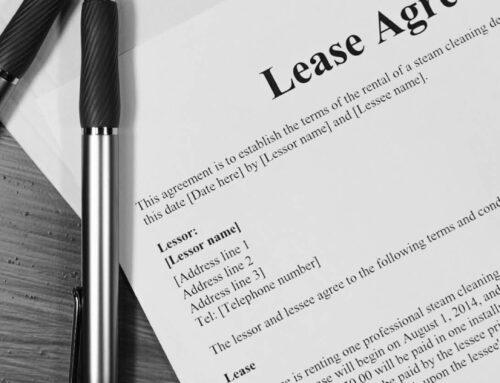Yes, “outgoing” in the sense of additional tenancy costs (not me after 3 negronis!).
The term “outgoings” in a commercial lease generally refers to additional expenses relating to the property that the tenant must pay in addition to the rent.
These typically include (but aren’t limited to):
- rates, levies and assessments imposed by any local councils and water authorities;
- utility consumption charges;
- land tax;
- the costs of maintaining and repairing the premises and any installations belonging to the landlord;
- body corporate levies and common area charges;
- premiums and charges for insurance policies taken out by the landlord;
- the cost of repairs or maintenance work in respect of essential safety measures (i.e. for fire safety prevention);
- heating, cooling and air-conditioning;
- cleaning, pest control and waste collection;
- security and lighting; and
- lifts, landscaping and common area maintenance.
Depending upon the state in which the premises is located and whether the lease is covered by the relevant retail leases legislation, certain outgoings may not be recoverable from a tenant so it is important that both tenants and landlords alike are informed about their rights in respect of each type of outgoing.
For example, in Victoria, recovery of land tax from a tenant under a lease covered by the Retail Leases Act 2003 (Vic) is not permitted. However, if it is a commercial lease for premises not covered by that Act (such as a warehouse that is not wholly or predominantly used for the sale or hire of goods or the retail provision of services) then the landlord may well be entitled to recover its land tax expenses from the tenant.
It is imperative to understand that outgoings are entirely separate from rent and are assessed and calculated separately. This can often cause confusion when new tenants are enticed to take new premises due to an attractive initial rent free period on offer only to discover later that the rent free period did not apply to outgoings and they are up for substantial costs for which they did not budget.
Often (but not always) the lease will set out the percentage of the outgoings which the tenant is liable to pay which is commensurate with the proportion of the premises which the tenant occupies. For example, if the tenant occupies only 60% of the entire premises, then their liability for outgoings might be calculated by taking the whole of the outgoings cost and multiplying that by 0.6. When a tenant occupies the whole of the building and land, then their proportion will often be 100%.
Whilst the calculation is generally quite straight forward, shopping centre leases or leases within large industrial complexes can often be fertile ground for outgoings disputes. This is because they can sometimes contain quite complex calculation mechanisms which, at times, also take account of the greater consumption of certain outgoings items that the premises may benefit from.
For example, some additional usage and security costs may apply to shopping centre premises that trade during the day as well as at night.
Shopping centres may also include marketing charges in outgoings which are often calculated as a percentage of rent (for example, 4% of the total rent excluding GST). Whilst not strictly an outgoing, shopping centre leases may additionally include a provision for ‘turnover rent’ which is a supplementary rental charge applied when a tenant reaches certain sales revenue milestones.
Prior to entering into a lease agreement, it is integral for tenants to properly understand precisely what outgoings and other extra costs could be liable for. It is equally important for landlords to properly assess outgoings when having a lease prepared because a failure to properly describe and disclose certain outgoings at the outset may mean that the outgoing will not be able to be recovered. Further, the disclosure regimes under the various state retail leases legislation can be quite prescriptive in terms of outgoings disclosure and can often require updates or audited statements to be provided by the landlord for each accounting period throughout the term of a lease and upon each renewal.
Tenants should thus ensure that they keep track of the types of outgoings being charged to them and regularly check them as against what was previously disclosed. Similarly, landlords should be mindful of their ongoing disclosure obligations and ensure that they do their homework in factoring in all possible outgoings when they prepare a lease. Integral to this is obtaining the right advice to ensure that they have a legal entitlement to recover particular outgoing.
If you require assistance with outgoings or commercial leasing generally, contact Rankin Business Lawyers for practical, on-point commercial legal guidance.
Joseph Carneli
Senior Associate







